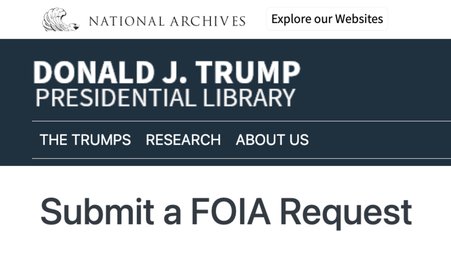There are many side effects to being stonewalled: disbelief, anger, disillusionment, and, of course, repeating yourself. I have experienced them all.
Since early 2012, I’ve been trying to access evidence from one of the most significant prescription drug-dealing trials in U.S. history, which ended with Dr. Paul Volkman – who was my father’s med-school classmate at the University of Chicago – sentenced to four consecutive life terms in prison.
I’ve written frequently about how my attempts to access this evidence have failed. And, by now, I know I sound like a broken record. There are only so many ways I can say my post-trial requests were denied by court clerks, the prosecutor, and the trial judge. There are only so many ways I can say it took the Department of Justice more than three years to process my February 2012 Freedom of Information Act request. There are only so many ways I can say the DEA’s redactions and withholdings in response to that request were so excessive that, in March of 2015, with the help of the ACLU and two pro-bono attorneys, I filed a FOIA lawsuit.
So forgive me if I echo arguments I’ve made elsewhere. But my lawsuit remains unresolved. And as we approach the five-year anniversary of the Volkman verdict, on May 10, the majority of this evidence remains locked away. This is an abject transparency failure.
All that I have ever asked to see are the materials that the Volkman jury saw. (Here is my original FOIA request, which included the trial’s 16-page exhibit list.) The U.S. supposedly values courtroom transparency – the Sixth Amendment guarantees all citizens a “public trial” – so this should have been an easy request to fulfill. But the “most transparent administration in history” has responded with delays, denials, and redactions at every turn. At this point, surely President Obama, our Constitutional-Law-Professor-in-Chief, sees the dark irony in his administration’s fight to withhold evidence already shown in open court.
But the case, I admit, isn’t quite that simple. Much of the evidence shown during Volkman’s trial, including prescription slips and autopsy reports, contained sensitive medical information that is protected – outside of courtrooms, at least –by laws like HIPAA. Courtroom transparency isn’t the sole concern here.
Look closer, though, and the case against releasing the evidence falls apart. In its October 2015 response to my lawsuit, the DEA admitted that none of these exhibits were filed under any kind of special seal during the trial. Furthermore, during the post-trial appeals process in 2013, prosecutors published some of the most sensitive exhibits with little or no redaction. And, further still, the DEA has hardly been a champion of medical privacy in the past. When the Oregon ACLU sued the agency over its disregard for patient privacy in 2013, one UPI headline read, "DEA: Medical Records Sent to Pharmacies Have No Protected Privacy."
The government’s disingenuousness doesn’t end there. In a November 2015 filing responding to my lawsuit, DEA lawyers wrote, “Claimant Eil has not articulated a significant public interest that would be advanced through the disclosure of the medical records [trial evidence] that he now seeks.” But the DOJ is well versed in this case’s importance; it’s spent the last four years touting it. Here is a 2012 DOJ press release describing Volkman as “the largest physician dispenser of Oxycodone in the country from 2003 to 2005.” Here is an 89-page DEA slideshow on the Volkman case presented at the National Conference on Pharmaceutical and Chemical Diversion in 2012. And here are two more DOJ-produced slideshows (one and two) placing Volkman among prominent prescription drug-dealers. The same DOJ that plays dumb to this case’s significance in FOIA-lawsuit filings has, elsewhere, repeatedly cast Volkman as one of the top villains of our current prescription drug epidemic.
Few government agencies are as powerful as the Department of Justice. As the Volkman case shows, the DOJ can investigate you, charge you, try you, and send you to prison for the rest of your life. When the agency picks a fight, it rarely loses. (One recent U.S. Attorney’s annual statistical report reads, “The rate of conviction remained over 92 percent, as it has since Fiscal Year 2010.”) One of the checks on this power is the public’s right to observe trials, hear testimony, and examine evidence. American justice was designed to withstand scrutiny.
But that scrutiny has been severely restricted in this case. And that’s what my FOIA fight is all about. I’m not saying Dr. Volkman is innocent, or that he ought to be sprung from prison. I’m saying that you and I – the plaintiffs and taxpayer patrons of “The United States vs. Volkman” – should have access to more than a fraction of the evidence that sent him away.
This is the same argument I’ve made for more than four years. But I’d rather repeat myself than stay silent while my country betrays one of its core principles.
Philip Eil is a freelance journalist based in Providence, Rhode Island. His work has appeared in the Atlantic, VICE, Salon, the Jewish Daily Forward, and elsewhere. Follow him on Twitter at @phileil.




